Australia’s economy, already plunged into recession in September – its first recession in 30 years since 1991 – continues to register bad news. And it has nothing to do with Covid-19 pandemic. Rather, it’s a self-inflicted economic backlash after Canberra deliberately campaigned for an international inquiry into the origins of the Coronavirus in April which infuriated Beijing.
In what appears to be a staggered “undeclared” trade war against the Aussie, China has banned more Australian products. Effective Friday, Australian lobster, barley, sugar, red wine, timber, coal, copper ore will be barred from China – even if the goods have been paid for and have arrived at Chinese ports. Chinese state-owned and private traders have been notified of the bans.
Chinese authorities have warned that Australian shipments would be turned away if traders tried to evade the latest sanctions by re-routing shipments via a third party country. Traders said – “Chinese importers have been told to obey strictly and suspend all orders for commercial reasons. Shipments arriving at the port before Friday will be released, but those arriving after will stay in port.”
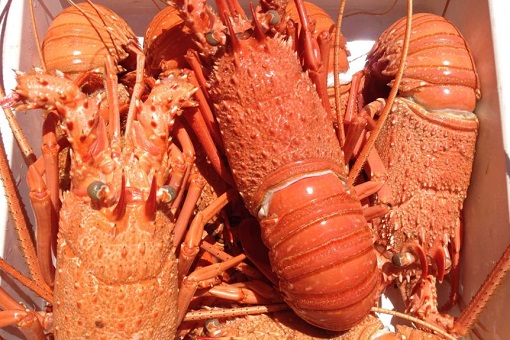
Joining the list of banned products is Australian wheat, dealing a blow to A$560 million (US$400 million) worth of the agricultural export to China. As recent as September, Beijing already warned Australian wheat producers that their exports were under the microscope as political and trade tussle between both countries escalates.
China has also decided to suspend Emerald Grain, one of Australia’s largest grains and supply chain operators, over the recent delivery of two shipments of malt barley which was found to be “contaminated”. However, Emerald, headquartered in Melbourne and owned by Japan’s Sumitomo, was not impressed over claims of weed seeds being detected in its shipment.
Emerald Grain says it has become the victim of a politically motivated ban. Emerald chief executive David Johnson argued that there was nothing wrong with either grains or barley sent to China, accusing Chinese authorities of taking steps to find faults. Coincidentally, Australia’s largest grain exporter, CBH, was also blacklisted by Chinese customs officials in September for similar reasons.
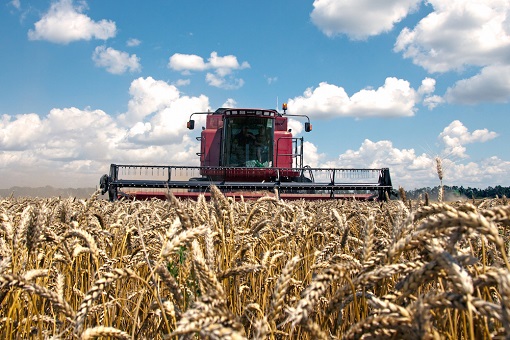
Besides agricultural products, Australian fishing industry too is being dragged into existing China-Australia trade tensions. Australian rock lobster has become the latest commodity targeted by Beijing for economic punishment. Commercially, China accounted for 94% of Australian rock lobster exports worth A$752 million (US$527 million) in 2018-19.
With the latest sanction on the Australian lobster, fishermen have every reason to be fearful. Live lobsters are typically flown in on ice to China and must be consumed within 72 hours of leaving Australia, unless they go into tanks. However, about 21 tonnes of live lobster worth A$2 million has been held up at Shanghai airport since Friday after China’s Customs agency alleges the lobsters may be contaminated.
Western Australian-based GFC (Geralton Fishermen’s Co-operative), Australia’s biggest lobster exporters whose 300 members sell almost all of their catch to China, has told its fishermen to temporarily stop catching the crustaceans. But the lobster industry was just starting to regain its footing after Coronavirus lockdowns in China were lifted.
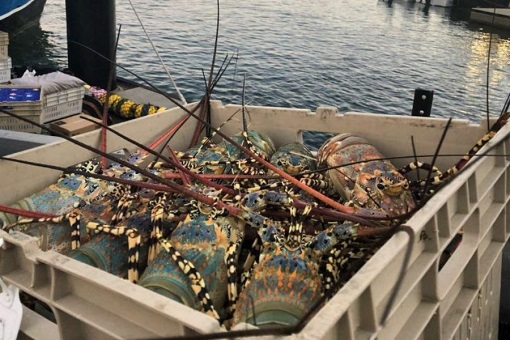
The price of rock lobsters plunged from a record A$105 a kilogram in January to “zero” but has recovered to A$45 a kilogram, before the Chinese dropped the boycott bombshell. While the Chinese customs officials implement more stringent inspection on Australian lobsters, imports of Mexican and American lobsters were not affected – suggesting deliberate retaliation against the Aussie seafood delicacy.
But Beijing was not done punishing Prime Minister Scott Morrison. On Sunday, China Customs said in a statement on its website it would ban imports of timber from Queensland, accusing the Australian log of containing bark beetle called “Ips grandicollis”. China is Australia’s largest trading partner for timber and wood products – worth a staggering A$1.9 billion.
China’s Foreign Ministry spokesman Wang Wenbin said – “If these pests are brought in, they will pose a serious threat to China’s forestry production and ecological security. We hope the Australian side will earnestly take effective measures to enhance inspections on exports and ensure that timber exports meet China’s inspection requirements.”
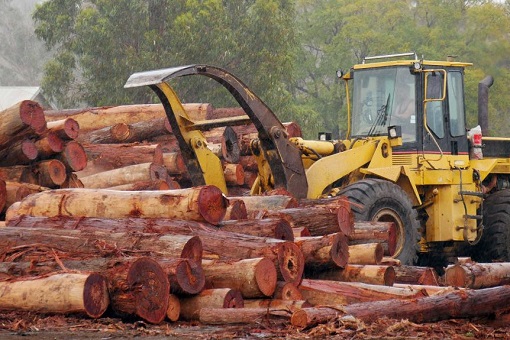
The Chinese government also raised the stakes in its economic campaign against Australia when it instructed multiple Chinese importers to stop shipments of wine from the land Down Under. Warnings have been issued that shipments of Australian wine will not clear customs after Friday – a slap to Australian grape and wine industry worth A$1.2 billion in exports to China.
The boycott is a follow-up to China’s retaliation in August, where it began a second investigation into imports of Australian wine, just after announcing a separate “anti-dumping” inquiry into its wine industry 2 weeks earlier. Beijing wanted to impose an anti-dumping tariff of 202.70%, which would triple the price of Australian wine.
The mission to disrupt the Aussie’s economy is obvious, so much so that even sugar is being targeted despite it was only worth A$100 million based on last year’s export to China. In addition to sugar, copper ore has lost its biggest customer as it joins the blacklist of Australian products. Australia is the world’s third-biggest copper exporter and half of its copper goes to China – export worth A$3.7 billion.
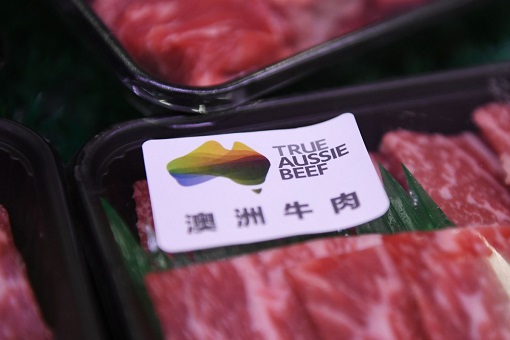
The diplomatic spat started in May, when China began what appeared to be its attacks against Australia by suspending imports from four major Australian beef suppliers for 30 days, allegedly over labelling issues. The country earned A$9.5 billion alone in beef export, followed by non-beef meat (A$5.2 billion), wool (A$3.8 billion) and wheat (A$3.7 billion).
China subsequently slapped an 80.5% tariff on all Australian barley. As the world’s biggest consumer of beer, China is the largest market for Australian barley. The Chinese imported over 2.5 million tonnes of Australian barley in 2018-19 – more than half of Australian total barley exports. China pays high prices for specially-bred types of barley specially grown by Austalian farmers for the Chinese market.
The 80.5% tariff on all Australian barley would cost the industry a whopping A$500 million per annum. That’s A$2.5 billion over the next 5 years as imposed by Beijing. Over the weekend, Beijing rejected an Australian grain industry appeal against the hefty barley tariffs it imposed in May. Australia’s barley trade with China was once worth A$1.6 billion a year.
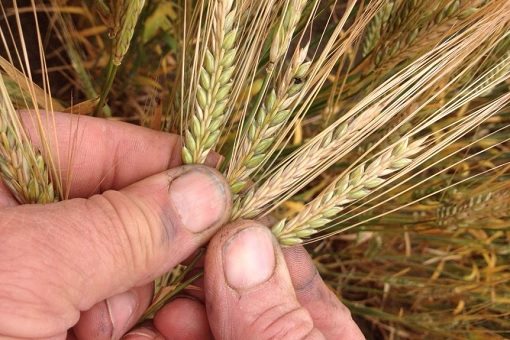
Beijing then moved on to escalate the trade tensions by imposing new customs inspection procedures on Australian iron ore imports. The Aussie’s iron ore export to China in 2018-19 was worth a jaw-dropping A$63 billion, not to mention A$17 billion of natural gas and A$14 billion of coal. Of course, it was just the beginning for China.
The next month (June), Beijing targeted the country’s tourism and education sectors. Chinese tourists were advised to stay away from Australia. According to the Australian Bureau of Statistics figures, 1.4-million (1,458,500) Chinese tourists visited Australia in the 12 months between December 2018 and November 2019, generating a cool A$12 billion a year in revenue.
In the same month, armed with “racist attacks against Asians” mantra, Beijing warned its students to reconsider plans to study in the country. The threat would punch a hole in the Australian’s A$37.6 billion education business. That is on top of a new modelling revealed by the Australian university sector that showed it will lose up to A$16 billion by 2023 due to the impact of Coronavirus.
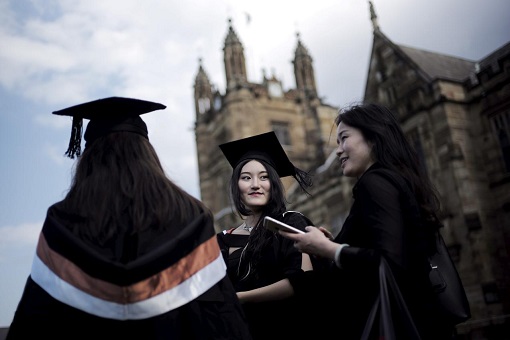
Last month (October), after China’s customs authorities told local steelmakers and power plants to stop importing Australian coal, dealing a blow to the A$14 billion industry, the A$2 billion cotton industry was targeted. Like it or not, Australia is the world’s most China-dependent developed economy, even though it has been seeking to reduce its reliance through trades with other nations.
China is sending a clear message to Australia. It is serious about punishing the country and is sending new waves of tough restrictions or sanctions on Australian goods. The fact that China is now paying significantly more for barley from France and Ukraine than they previously bought from Australia goes to show that the Chinese isn’t done yet. The Aussie should not have attacked its biggest customer.
Other Articles That May Interest You …
- China Punish Australia Again – Recession-Hit Aussie Saw Its A$2 Billion Cotton Industry Targeted
- Australia Upset! – China Now Uses “Asian Discrimination” To Target Aussie’s A$38 Billion Education Industry
- Coronavirus Inquiry Backfired On Aussie – China Slaps Tariffs, Warns It Has The Power To Hurt Australia Economy
- Lawsuits For Trillions Of Dollars Against China Over Spread Of Coronavirus – Here’s Why It’s A Waste Of Time
- IMF – The “Great Lockdown” Is Set To Triggers The World’s Worst Recession Since The 1929 Great Depression
- 3 Coronavirus Variants Discovered – Surprisingly, “Type-A” Found In Americans, Wuhan’s Type-B And Type-C In Europe
- China Appears To Be Winning The Coronavirus War, And Other Countries Are Studying How The Chinese Did It
- Arabs Conspiracy Theories – Coronavirus Is The U.S. & Israel Biological Warfare To Cripple China’s Economy & Reputation
- National Security Threat – China’s Huawei & ZTE “5G Technology” Banned In Australia
- Corruption In Australia? – Huawei The Biggest Sponsor Of Australian Politicians

|
|
November 4th, 2020 by financetwitter
|


|

|

|

|

|

|




























Morrison badly wants to be US Deputy Sheriff, seeking validation from Trump. Biting the hand that feeds you isn’t a smart move and I bet Morrison doesn’t have a Plan B for these exports.
If how the US abandoned HK students protesters is any indication of how US treats it’s supporters, then don’t expect US to help Oz by buying the shortfall. The US doesn’t need any of these exports anyways. You’re on yer own, mate.